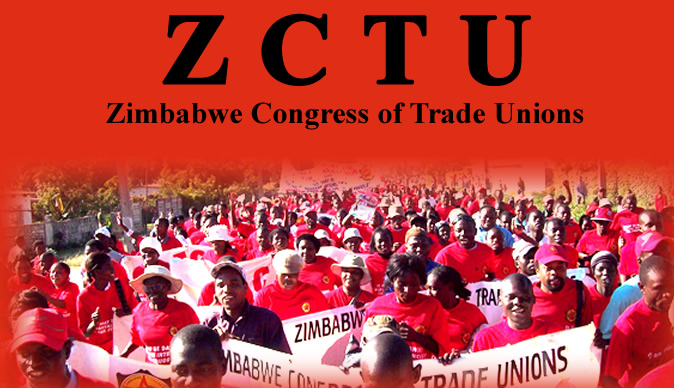
BY SILAS NKALA
THE Zimbabwe Congress of Trade Unions (ZCTU) says it will soon hold a general council meeting to decide the way forward for its members as the economic situation continues to deteriorate, while incomes for workers continue to shrink.
Last month, the ZCTU called for a three-day nationwide stayaway to push the government to reduce the prices of fuel, which had been increased by President Emmerson Mnangagwa by over 150%. They were also calling for the removal of the bond notes.
ZCTU president Peter Mutasa yesterday said the economic situation had been worsened by the recently announced monetary policy, which he said was anti-workers.
“We are organising a general council meeting soon to discuss these issues, and very soon we will come up with a way forward. At the moment, we are consulting,” Mutasa said.
“We are also going to have a conference which will involve all the workers. Workers must not be divided by their profession and we are saying government workers, private sector workers, all must come together and have one voice on these issues.”
Mutasa said government should address the concerns of all Zimbabweans.
“We are not criminals, we are not being used by anyone and we are not sent by any one. Hunger, poverty and suffering are pushing the people to do what they did on January 14. Government must stop backing its weird policies with guns, teargas and trumped-up charges against workers,” he said.
- Chamisa under fire over US$120K donation
- Mavhunga puts DeMbare into Chibuku quarterfinals
- Pension funds bet on Cabora Bassa oilfields
- Councils defy govt fire tender directive
Keep Reading
“Following the stayaway, the government now knows that people are not happy and workers can no longer transport themselves to work. We are expecting the government to respond to issues that people are raising. We will not be cowed by State brutality because we know that we are fighting a good cause.”
Mutasa said they would come up with a plan of action at the general council meeting and conference for all sectors.
He lamented that during the stayaway, rogue elements joined in to cause disturbances in order to arm the brutal government with cause for retributive measures against the workers.
ZCTU western region chairperson Ambrose Sibindi said their calls for better wages, and for government to find solutions to the economic challenges, such as the astronomical rise in prices of basic commodities, had fallen on deaf ears as the government went ahead to implement measures which further emasculate workers and citizens at large.
“To tell the truth, the things we demanded that the government address have remained the same or even worse now. The monetary policy statement placed the US$1 at RTGS$2,5, while all along the government had been claiming that it was trading at 1:1. This means salaries have been eroded,” Sibindi said.
“The sad part is that instead of government trying to find ways to address people’s concerns, it is arresting our leaders [Mutasa and secretary-general Japhet Moyo], so that they instil fear on members not to raise their heads any more. We won’t be intimidated. We are considering taking some other action again very soon if these issues continue unabated.”
The Reserve Bank of Zimbabwe, through statutory instrument (SI) 33 of 2019, introduced an electronic currency, the real time gross settlement dollar (RTGS dollar) for local use.
Sibindi said basic commodities were now beyond the reach of many. He said it was sad that though government had finally accepted that the bond note was not at par with the United States dollar, it had failed to adjust workers’ salaries to reasonable levels.
“Our wish is that the government should engage with the workers and employers at the Tripartite Negotiating Forum where government, workers and employers will be represented and must avoid dealing with employers as individuals,” Sibindi said.
Civil servants have, since last year, been negotiating for an adjustment or payment of salaries in hard currency without much success.
Sibindi said another industrial action was imminent if the government continued to victimise people who were genuinely expressing their discontent over the deepening economic crisis.











